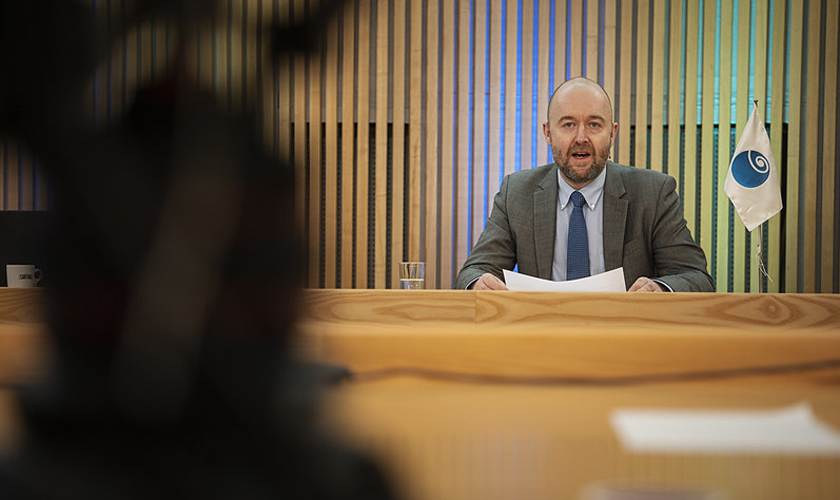
Eirik Sivertsen (Labour Party) speaks during the 14th Arctic Parliamentary Conference. Photo: Benjamin A. Ward / Storting.
High North dialogue in the Storting “an important forum”
The Storting’s Delegation for Arctic Parliamentary Cooperation is meeting the Minister of Foreign Affairs this week for its biannual High North dialogue. The agenda will include an exchange of information from recent Arctic summits, and an update on the Government’s High North white paper.
The High North dialogue takes place twice a year. The forum first came into being after the publication of the High North white paper in 2011. The aim is to exchange information about political issues that relate to developments in the Arctic.
Among the items on the agenda for this week’s meeting are the 12th Ministerial meeting of the Arctic Council, which took place in May, and the 14th Arctic Parliamentary Conference, which was held in April.
“The High North Dialogue is an important forum for matters relating to developments in the Arctic. The mutual exchange of information from meetings is an element of this,” says Eirik Sivertsen (Labour Party), head of both the Storting’s Delegation for Arctic Parliamentary Cooperation and the High North dialogue.
Climate issues
The meeting will also raise matters of current political interest, including the Barents Euro-Arctic Cooperation and the EU’s Arctic policy initiatives.
“A message I intend to stress is that Arctic nations must lead the way in cutting climate emissions, and be an international driving force in the run-up to this autumn’s Climate Change Conference in Glasgow. We also need greater know-how about developments in the High North, which is why I want to start planning a new International Polar Year,” Mr Sivertsen adds.
Good communication is essential
Members of the Storting’s other international delegations have also been invited to the meeting, since these organizations also regularly deal with Arctic-related questions.
“There’s a broad national consensus about international policy towards the High North and its impact on Norway. For this reason, it’s essential that the Government and those who represent the Storting in different international forums communicate well,” Mr Sivertsen concludes.
Sist oppdatert: 17.06.2021 19:47